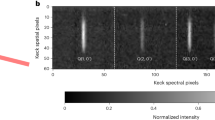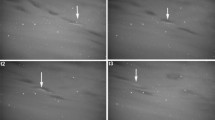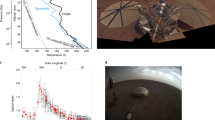Abstract
IN NATURE for April 11 last Dr. Chree reviewed Sir Douglas Mawson's paper on “Auroral Observations at the Cape Royds Station, Antarctica,” and directed attention to the impression the observers received that the aurora was sometimes seen in the lower atmosphere between them and Mount Erebus. A similar statement had appeared in Shackleton's book, “The Heart of the Antarctic” (vol. ii., pp. 360–61), before Scott's expedition left for the South. As this subject is of fundamental importance in all discussions of the origin and nature of the aurora, I arranged with all members of the expedition that I should be called whenever they saw, or thought they saw, an aurora in front of Erebus.
This is a preview of subscription content, access via your institution
Access options
Subscribe to this journal
Receive 51 print issues and online access
$199.00 per year
only $3.90 per issue
Buy this article
- Purchase on Springer Link
- Instant access to full article PDF
Prices may be subject to local taxes which are calculated during checkout
Similar content being viewed by others
Author information
Authors and Affiliations
Rights and permissions
About this article
Cite this article
SIMPSON, G. Auroral Observations in the Antarctic. Nature 102, 24–25 (1918). https://doi.org/10.1038/102024c0
Issue Date:
DOI: https://doi.org/10.1038/102024c0
Comments
By submitting a comment you agree to abide by our Terms and Community Guidelines. If you find something abusive or that does not comply with our terms or guidelines please flag it as inappropriate.



